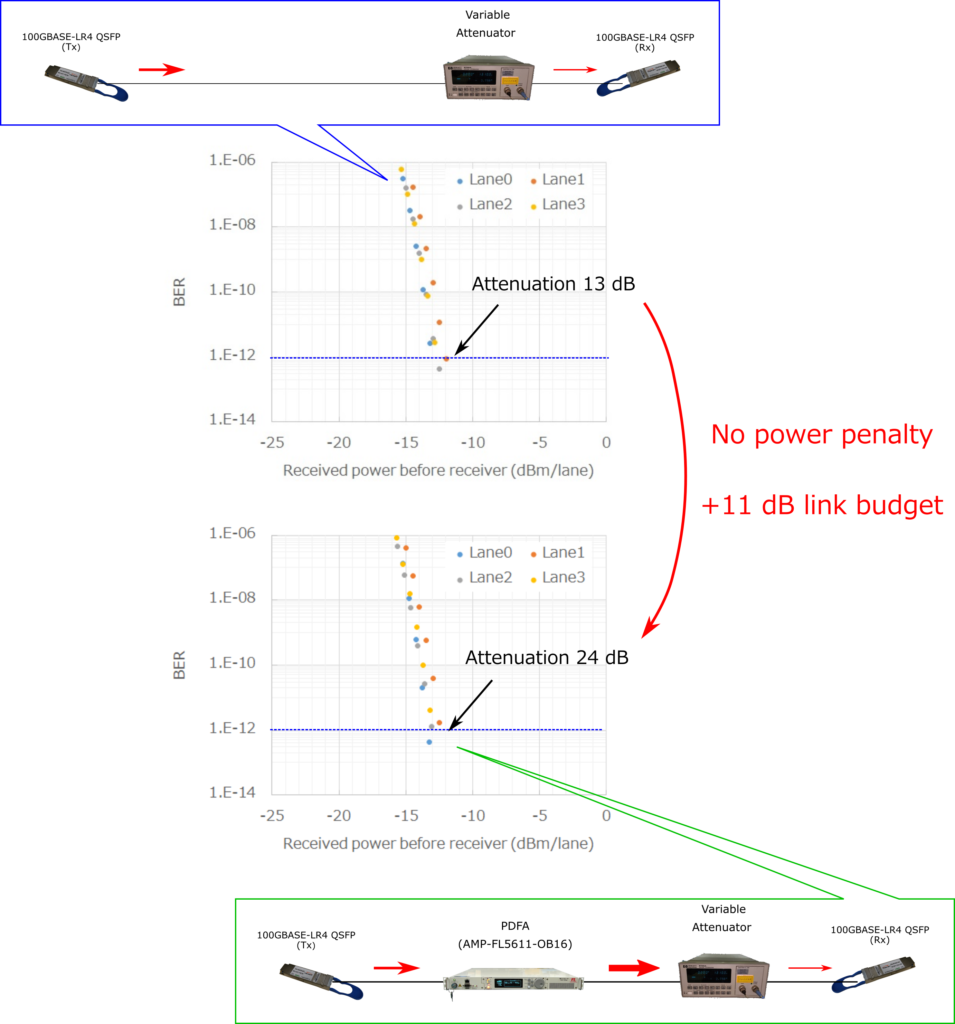O-band booster Optical Amplifier for 100G Ethernet
Summary
This technical article describes an application of FiberLabs PDFA for enhancing the link budget of 100GBASE-LR4 transmission. We show that adding a FiberLabs PDFA (AMP-FL5601-OB16) as a booster amplifier
- increases the link budget by more than 10 dB, and
- does not add power penalty.
Experiment and result
The benefits of a booster amplifier was evaluated by conducting a series of BER measurements in the following two conditions:
- Back-to-back
- With booster PDFA (FiberLabs AMP-FL5601-OB16)

Other applications
The high output power and low noise figure of a PDFA allowed the enhancement of link budget without power penalty. This scheme can also be applied to extended-reach transceivers (e.g. 100GBASE-ER4, 100G ER4-lite, and 100G 4WDM-20/40), as they are based on high-sensitivity receivers, and not high-output transmitters. The maximum reach may be extended to >60 km with the simple addition of a booster PDFA. Other than link budget enhancement, the use of booster PDFA may hugely benefit transceiver testing (e.g. receiver stress test), or branching-loss compensation for network monitoring, etc. So far, PDFA is the only practical choice if you need to simultaneously amplify the LR4 signal to a high power (>+15 dBm). SOA may be used as a preamplifier but not as a booster amplifier, as the saturation output power of SOA is typically below 10 dBm. Another critical reason an SOA cannot be used for this application is nonlinear effects, which result in significant BER degradation.